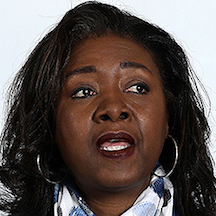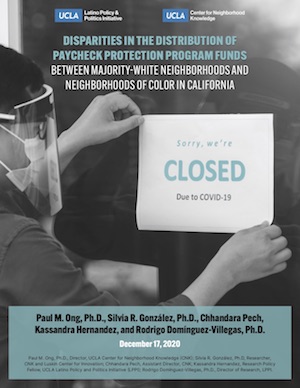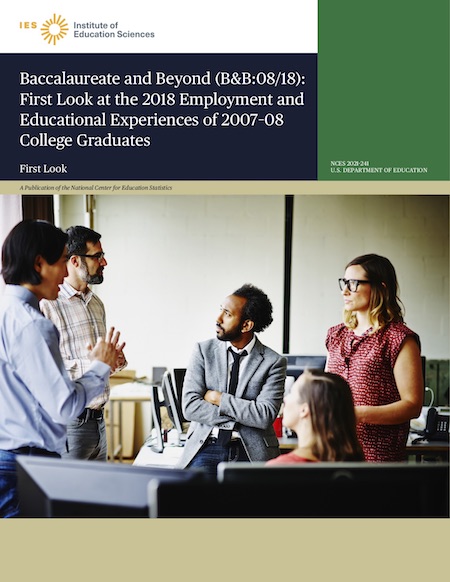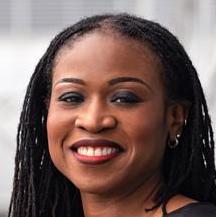Can Attending an HBCU Improve Your Chances for a Healthy Life?
A study led by researchers at Ohio State University found that African Americans who attended historically Black colleges or universities were at lower risk for health problems later in adulthood compared to African Americans who attended predominantly White institutions.
Does the FBI’s Hate Crime Data Present A True Vision of Reality?
In 2019, there were 7,314 hate crime incidents reported to the FBI. More than 86 percent of all participating law enforcement agencies reported zero hate crimes in their jurisdictions. There were 245 reported hate crimes on college and university campuses in 2019.
Study Finds That Racial Segregation in Public Schools in Virginia Is on the Rise
The report, by researchers at Virginia Commonwealth University and Pennsylvania State University, reveals that segregation among schools in the same division contributes to half or more of all multiracial school segregation in Virginia’s metropolitan regions.
The Nationwide Racial Gap in College Graduation Rates
The Black student college graduation rate of 48 percent was 22 percentage points lower than the rate for Whites and 31 percentage points below the rate for Asian Americans. The Black student graduation rate trailed the rates for Hispanics by 13 percentage points.
The Current Racial Digital Divide May Have Long-Lasting Repercussions
A new report from Deutsche Bank Securities finds that due to the current racial gap in personal computer ownership and broadband access "76 percent of Blacks and 62 percent of Hispanics could get shut out or be under-prepared for 86 percent of jobs in the United States by 2045."
Students From Sub-Saharan African Nations at U.S. Colleges and Universities, 2019-20
In the 2019-20 academic year, there were 41,697 students from sub-Saharan Africa enrolled at colleges and universities in the United States. They made up 3.9 percent of the 1,075,496 foreign students at U.S. colleges and universities that year. The number of students from sub-Saharan Africa was up 3.5 percent from the prior year.
The College Graduation Rates of African American Student Athletes
For Black student athletes who entered college in 2013 at NCAA Division I institutions, 59 percent earned their diplomas within six years. This is 11 percentage points higher than the rate for Black students as a whole at these institutions.
Some Progress in Increasing Black Faculty in Accounting But There Is a Long Way...
The data shows that there are 211 Black faculty members teaching accounting at the nation's business schools. They make up just 3.2 percent of all faculty at these schools. Of the 211 Black faculty members, 107 are women and 104 are men.
Latest Data on U.S. College Students Who Studied Abroad in Sub-Saharan Africa
Of all U.S. students studying abroad, 13,455, or 3.9 percent, attended universities in sub-Saharan Africa. Sub-Saharan African nations send 3.1 times as many students to American universities as America sends to sub-Saharan African universities.
Grading the Nation Top-Ranked Universities on Graduating Their Black Students
All of the 20 highest-ranked universities in the United States according to ratings by U.S. News & World Report have Black student graduation rates far higher than the national average of 48 percent. Harvard has the highest rate at 98 percent, followed by Yale and Princeton.
The Impact of Education and Race on Tobacco Use by American Adults
In 2019, 20.7 percent of African American adults used tobacco products compared to 23.3 percent of non-Hispanic White adults. White adults were nearly seven times as likely as Black adults to use smokeless tobacco products.
Racial Microaggressions May Be Pushing Black Students Out of STEM Disciplines
The study by researchers at the University of Illinois found when students of color in STEM majors felt excluded, invisible, or isolated on their college campus because of their race, sometimes combined with discouraging experiences in academic settings, they were less likely to continue in STEM.
The Persisting Racial Gap in College Graduation Rates at Flagship State Universities
At 21 flagship state universities in states with large Black populations, 15 have a racial graduation rate gap of 10 or more percentage points. The widest gap is at the University of Mississippi. There the Black graduation rate of 42 percent is 23 percentage points below the rate for White students.
African Americans Making Slow but Steady Progress in Doctoral Degree Awards
There were 2,512 African Americans who earned doctorates in 2019. They made up 7.1 percent of all doctorates awarded to U.S. citizens or permanent residents in the United States. Women made up 64.3 percent of all African Americans earning doctorates in 2019.
UCLA Study Finds Persisting Racism Among the Millennial Generation
The researchers sent 4,000 responses to real “roommate wanted” ads posted by millennials. They used names that signaled the race of the room seekers. The results showed that White-sounding names received the most responses, while those that signaled Black roommates got fewer responses.
Graduation Rates of Students at State-Operated Historically Black Universities
A few of the nation's private historically Black colleges and universities have achieved progress in graduating their Black students. But at most of the nation's state-operated historically Black colleges and universities, the graduation rates remain very low.
Positive Identity Reinforcement at School Improves Black Students Academic Performance
A new longitudinal study by researchers at the University of Pittsburgh shows that African American youth who receive positive messages about their racial group in school achieved better school grades one to two years later.
UCLA Study Finds Stimulus Package Widened Racial Economic Inequality
The UCLA analysis of disparities in the distribution of Paycheck Protection Program Funds, when standardized on a per-resident basis, found that the federal loans supported 5.8 jobs per 100 residents in Black neighborhoods, compared with 8.1 per 100 residents in White communities.
The 21 Historically Black Universities That Awarded Doctoral Degrees in 2019
All told, 21 HBCUs awarded doctoral degrees in 2019. This is the same number of doctoral degree-granting institutions as five years ago in 2014. That year HBCUs awarded 448 doctoral degrees. In 2019, HBCUs gave out 437 doctorates.
The Racial Gap in Attendance and Absenteeism in Public Schools
New data from the California Department of Education shows that prior to the pandemic Black students missed an average of 13.2 days of school each year. White students were absent, on average for 9.1 school days. For Black students, 52.7 percent of all absences were unexcused compared to 29.4 percent for White students.
Academic Disciplines Where African Americans Received Few or No Doctorates in 2019
In 2019 there were 2,512 African Americans who earned doctorates. They made up 7.1 percent of all doctorates awarded to U.S. citizens or permanent residents in the U.S. But there are many fields where Blacks earned only a tiny percentage of all doctorates. For example, African Americans earned only one percent of physics doctorates.
The Year in Review: Notable Research on African Americans in Higher Education in 2020
Over the course of 2020, JBHE has published a large number of posts highlighting research on African Americans in higher education. In case readers missed some of these posts, here are links to some of the items published over the past year.
Fatalities From Work-Related Injuries Increasing for Black Americans
In 2019, 634 African Americans died as a result of work-related injuries. The number of African American fatalities has increased by 28 percent since 2015. This is more than double the increase for the population as a whole.
Racial Differences in the Age of Doctoral Degree Recipients in the United States
On average, Whites who earned doctorates were 31.6 years old when they received their doctoral degrees. For African Americans, the average age was 36.1. But when we break the figures down by age group, we see more pronounced differences.
College Athletic Powerhouses Making Progress in Racial Equity in Leadership Posts
Of the 130 colleges and universities that make up the Football Bowl Subdivision of Division 1 of the National Collegiate Athletic Association, nine have a Black or African American president or chancellor. This is up from five a year ago.
The Huge Racial Gap in Graduate School Student Debt
African Americans who earned doctorates in 2019 had an average graduate student debt of $84,050. Nearly 21 percent of African Americans who earned doctorates in 2019, had graduate student debt of more than $160,000.
University of Minnesota Project Looks at How Interstate Highway Construction Affected Blacks
When constructing the system through urban areas, planners often chose routes that went through the poorest and predominantly Black neighborhoods. It was cheaper to obtain property in these neighborhoods and planners believed they would meet minimal resistance from residents and political leaders in these areas.
Study Says Empathy Scores Should Be a Part of Holistic Admissions Process for Medical...
In a study sponsored by the American Association of Colleges of Osteopathic Medicine, researchers surveyed 3,616 first‐year, 2,764 second‐year, 2,413 third‐year, and 1,958 fourth‐year medical students to determine their levels of empathy. African American students scored the highest on the empathy index, while Asian Americans scored the lowest.
HBCUs Do More With Less: Despite Financial Handicaps, HBCUs Are Highly Successful
Despite operating with lower revenues and smaller endowments, HBCUs produce about one out of eight bachelor’s degrees earned by Black students in the United States. In short, HBCUs, do more with less.
Study Finds That Having a Black Doctor Reduces the Infant Mortality Rate of Black...
In the United States, Black newborns die at three times the rate of White newborns. But a new study finds that "clinical penalties for Black newborns treated by Black physicians are halved compared with the penalties Black newborns experience when cared for by White physicians."
The Racial Diversity Problem in Music Schools at Universities in the United States
Nationwide, about 6 percent of all students who earn bachelor's degrees in music are Black. A concentration on the classical music of Europe at many schools of music is one reason for a low level of participation by Black students. Music education, with its high cost for purchasing instruments, training, traveling, is also a challenge.
Racial Differences in Union Membership and Wages
In 2020, there were 2,055,000 African Americans who were union members. Some 12.3 percent of African American workers were members of labor unions compared to 10.7 percent of White workers. African Americans made up 14.4 percent of all union members.
How Hate Crimes in a State Impact Enrollments at Historically Black Colleges and Universities
The authors of the study, published by the Stanford Center for Education Policy Analysis, found that an increase in reports of state-level hate crimes predicted a 20 percent increase in Black first-time student enrollment at HBCUs.
Racial Differences in Well-Being for College Graduates Ten Years After Earning Their Degrees
Thirty percent of Blacks who earned a bachelor's degree in the 2007-08 academic year had earned a master's degree 10 years later. Only 26.6 percent of Whites had earned a master's degree. Whites were significantly more likely than Blacks to earn a professional degree within 10 years of graduating from college.
A Checkup of Black Students at Medical Schools in the United States
In 2020, 22,239 students enrolled in medical school for the first time. Of these, 2,117, or 9.5 percent, were Black. The number of Black matriculants was up 10.5 percent from 2019 and by 51.6 percent from 2013.
Scientists Call for an End to Racial Funding Disparities in Biomedical Engineering
Representatives from a network of women deans, chairs, and distinguished faculty in biomedical engineering are calling upon the National Institutes of Health and other funding agencies to address disparities in allocating support to Black researchers.







































